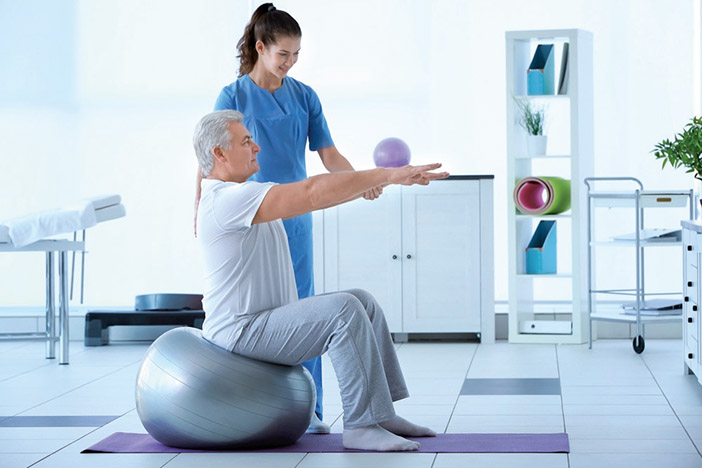

(Courtesy of HRH) For 25 million Americans, chronic pain is a major part of their lives. Whether this pain is localized in the back or the joints, pain can be something that can prevent us from performing everyday tasks and can further deter people from working and participating in a healthy lifestyle. When confronted with pain, many people choose to ignore the warning signs and decide to push through the pain. This can be very dangerous and put unintended pressure on the bones and joints that are responsible for handling the weight of entire bodies.
With Yom Kippur this week and the 12-14 hours of standing in shul, pain in the back, hips and knees are quite common. Luckily there are a ton of different exercise and techniques people can use to prevent pain or ease the effect of pain on their bodies. Through a variety of stretches and minimally invasive procedures, people can find the cause of pain, and be able to conquer this paralyzing condition so that they can return to a pain-free lifestyle and enjoy life!
Further, Hudson Regional Hospital provides a range of different examination and treatment options that can be used for dealing with pain. Based on the most recent data and input from Hudson Regional Hospital physicians, here are a selection of pain management tools that can be applied during all phases of life.
Believe it or not, in addition to being Pain Awareness Month, September is also Yoga Awareness Month. Yoga can be an excellent tool for dealing with chronic pain. Yoga is a program focusing on the mind and body, combining breath control, meditation and movements to strengthen muscles. What sets yoga apart though in pain relief, is its mental effects. Doing yoga three to four times a week for 20 minutes can have a significant impact on how pain affects your body.
The way you sleep can have a significant effect on how pain is affecting your back and joints. If you are beginning to feel the onset of chronic pain, consider switching your sleeping style. Sleeping in a reclining position has been shown to ease pain and provide a better night of sleep. If that doesn’t work, try using an adjustable bed. An adjustable bed can be helpful in treating spinal stenosis, osteoarthritis and other spine conditions.
Swimming can be a valuable and fun resource for those looking to get pain relief. For many older people, a land-based program is not as useful for pain relief because of the pain intensity, increased bone density and accessibility issues. A water-based program, on the other hand, can be a low-intensity workout that can help alleviate osteoarthritis and muscle strains and tears.
In its broadest sense, pain management deals with providing medical care that can either alleviate or reduce pain severely. There are a lot of different techniques a physician can use to help reduce this pain. A few procedures include physical therapy, minimally invasive procedures, chiropractic care, injections or acupuncture. Hudson Regional Hospital is proud to offer specialists and medical staff who are very experienced in reducing pain using these methods.
If none of these programs works for you, it may be time to consider robotic surgery, especially for the spine. As the exclusive provider of Mazor Robotics in Hudson County, Hudson Regional Hospital uses this innovative technology for many minimally invasive procedures. Mazor Robotics has been clinically proven to reduce the average hospital stay by 27 percent, cuts complication rates in half and reduces radiation exposure by 74 percent. If you are suffering from back pain, joint pain or a back issue, Mazor Robotics may be the solution for you.
Hudson Regional Hospital offers many pain management services and others, both on an inpatient and outpatient basis. Patients can inquire about these services or schedule appointments by contacting the hospital directly, either via telephone, at 201-392-3100, or email, at [email protected]. Patients facing medical emergencies should proceed directly to the emergency room. The emergency room contact number is 201-392-3210.
For a tour of the new Hudson Regional Hospital or to meet the owner and executive staff, physicians should call George Matyjewicz at (201) 392-3436 or email [email protected].










